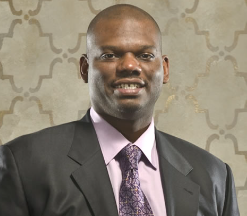As the COVID-19 pandemic continues, Americans are spending more to cover growing living expenses. The Federal Reserve Bank of New York found that credit card charges skyrocketed to $790 billion in the second quarter of 2021. Fifty-nine million Americans have added more credit card debt to their balances as well.

Black Consumers Face High Debt
This trend doesn’t bode well for African-Americans who hold high debt. The net worth of African-Americans is at a paltry $24,000 compared to $188,000 for white Americans, and Blacks often have to go into debt to cover their expenses. Consumer prices have been rising while wages for African-Americans have not. A recent McKinsey poll found that 43 percent of Black Americans are reported to be in low-wage jobs, and in those jobs they’re earning less than $30,000.
In a January 2021 Credit Sesame survey, 30 percent of African-Americans felt tricked by card companies when they first established credit. The Credit Sesame survey, which polled 5,000 adults, found that 30 percent of Black Americans believe that the credit system is biased against them.
End of Pandemic Relief Drives Black Americans to More Credit Card Debt
Black Americans feel even more unsure now with the end of many government programs that helped them financially during the pandemic. Three stimulus checks that many received gave much-needed assistance to Black Americans, many of whom faced job uncertainly during the shutdown. Now, with the end of unemployment benefits and the reality of eviction moratoriums, African-Americans are looking for ways to cover debts and are turning to credit.
How Does Bad Credit Hurt African-Americans?
With this uptick in higher credit card usage, Black Americans will be faced with higher debt and, in many cases, fewer ways to pay down that debt. When Black Americans end up in credit card debt, that can significantly impact their credit and other aspects of their lives. Credit Sesame found that a whopping 54 percent of Black Americans have a terrible credit score below 640, and a good credit score is 670 and above.
If African-Americans have low credit scores, they are less likely to be able to achieve life goals. A Credit Sesame survey found that 28 percent of respondents can’t rent apartments because of their bad credit. The same study found that 22 percent of people with poor credit had trouble getting cell phones as a result.
Insurance companies can raise your premiums based on poor credit. Even employers can disqualify applicants from job interviews if they up pull their subpar credit report.
More Black Americans than their white counterparts don’t even have any credit history. Black Americans are the most likely to be credit invisible, with 18 percent not having any credit. As a result of that credit invisibility, some Black Americans find themselves turning to risky payday loans that can charge an exorbitant interest of 400 percent and up.
Biased Banking System Harms Black Americans
Credit systems in the U.S. often put Black Americans at a disadvantage. Credit bureaus don’t consider rental payments in determining credit ratings. Since many African-Americans are more likely to be renters than homeowners, they often get lower credit ratings as a result. Banks are also notoriously reluctant to extend credit to Black applicants as well.
How Black Americans Can Improve Credit Scores
While many Black Americans suffer from credit card debt, there are ways to reduce that debt. Here are some ways to get control of credit card debt.
- Negotiate with credit card companies. Contact your credit card company to see if you can lower or delay your credit card payments through a hardship agreement. You can also request a lower interest rate.
- Pay off debt with the smallest interest first. If you pay off the bill with the lowest interest rate and get that debt down, it can motivate you to pay off the cards with the highest interest.
- Schedule automated payments. If you set up an automatic payment on your credit card debt every month, you won’t be as likely to forget to make payments on time.
- Check your credit reports. There may be a mistake in your credit report that could be lowering your credit score. Read through your credit report thoroughly to see if they have accurate credit scores.




